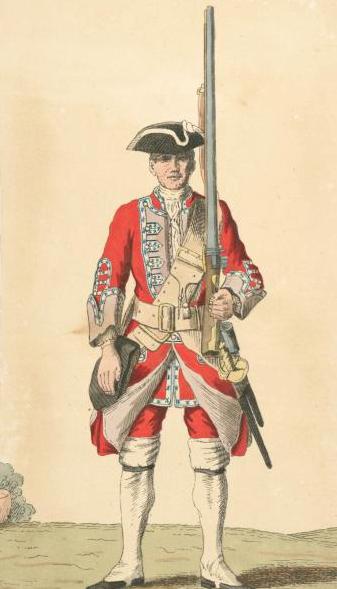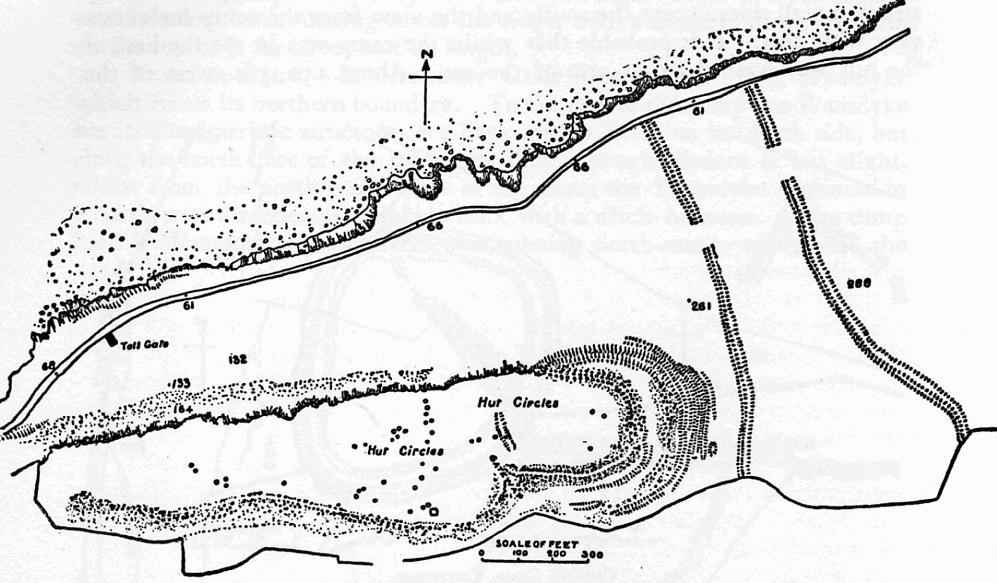|
Charles Abraham Elton
Sir Charles Abraham Elton, 6th Baronet (31 October 1778 – 1 June 1853) was an English officer in the British Army and an author. Life Charles was eldest of three sons of the Rev Sir Abraham Elton, 5th of the Elton baronets, by Elizabeth, daughter of Sir John Durbin, alderman of Bristol, and was born at Bristol on 31 October 1778. He was educated at Eton, and at the age of fifteen received a commission in the 48th Regiment of Foot, in which he rose to the rank of captain. He served with the 4th Regiment of Foot in the Flanders Campaign under Frederick, Duke of York. He was afterwards lieutenant-colonel of the Somersetshire Militia. On the death of his father (23 February 1842) he became 6th baronet. Elton was friends with Charles Lamb and Samuel Taylor Coleridge. He was a strong Whig, and spoke at the Westminster hustings on behalf of Samuel Romilly and John Hobhouse; but latterly he lived much in retirement at his house, Clevedon Court. He died at Bath on 1 June 1853. ... [...More Info...] [...Related Items...] OR: [Wikipedia] [Google] [Baidu] |
48th Regiment Of Foot
The 48th (Northamptonshire) Regiment of Foot was a regiment of the British Army, raised in 1741. Under the Childers Reforms it amalgamated with the 58th (Rutlandshire) Regiment of Foot to form the Northamptonshire Regiment in 1881. History Early history The regiment was raised at Norwich by Colonel James Cholmondeley as James Cholmondeley's Regiment of Foot in 1741 during the War of Austrian Succession. It was sent to Scotland in 1745 and fought against the Jacobitism, Jacobites the Battle of Falkirk Muir in January 1746 and the Battle of Culloden in April 1746 during the Jacobite rising of 1745, Jacobite rising. The regiment was deployed to Flanders in spring 1747 for service in the War of the Austrian Succession and saw action at the Battle of Lauffeld in July 1747. It was ranked as the 59th Regiment of Foot in 1747 but re-ranked as the 48th Regiment of Foot in 1751. The regiment embarked for North America in January 1755 for service in the French and Indian War and, having land ... [...More Info...] [...Related Items...] OR: [Wikipedia] [Google] [Baidu] |
Unitarian Faith
Unitarian or Unitarianism may refer to: Christian and Christian-derived theologies A Unitarian is a follower of, or a member of an organisation that follows, any of several theologies referred to as Unitarianism: * Unitarianism (1565–present), a liberal Christian theological movement known for its belief in the unitary nature of God, and for its rejection of the doctrines of the Trinity, original sin, predestination, and of biblical inerrancy * Unitarian Universalism (often referring to themselves as "UUs" or "Unitarians"), a primarily North American liberal pluralistic religious movement that grew out of Unitarianism * In everyday British usage, "Unitarian" refers to the organisation formally known as the General Assembly of Unitarian and Free Christian Churches, which holds beliefs similar to Unitarian Universalists * International Council of Unitarians and Universalists, an umbrella organization * American Unitarian Association, a religious denomination in the United States ... [...More Info...] [...Related Items...] OR: [Wikipedia] [Google] [Baidu] |
William Henry Brookfield
William Henry Brookfield (31 August 1809 – 12 July 1874) was an Anglican priest, Inspector of Schools, and chaplain-in-ordinary to Queen Victoria.. His son was the playwright Charles Brookfield. Biography William Henry Brookfield was the second son of Charles Brookfield, a solicitor at Sheffield, where he was born on 31 August 1809. He attended Leeds Grammar School, and in 1827 he was articled to a solicitor at Leeds, but left this position to enter Trinity College, Cambridge, in October 1829 (B.A. 1833, and M.A. 1836). In 1834 he became tutor to George William Lyttelton. In December 1834 he was ordained to the curacy of Maltby in Lincolnshire. He was afterwards curate at Southampton, in 1840 of St. James's, Piccadilly, and in 1841 of St. Luke's, Berwick Street. In 1841 he married Jane Octavia, the eighth and youngest daughter of Sir Charles Elton of Clevedon Court, Somerset. Julia Maria, wife of Henry Hallam the historian was Sir Charles's sister. In 1848 Brookf ... [...More Info...] [...Related Items...] OR: [Wikipedia] [Google] [Baidu] |
Jane Octavia Brookfield
Jane Octavia Brookfield (25 March 1821 – 27 November 1896) was a literary hostess and writer, best known for her platonic friendship with William Makepeace Thackeray. She also wrote four novels; some critics have drawn parallels between the events in these novels and her relationship with Thackeray. Biography Brookfield was born on 25 March 1821, the youngest daughter of Sir Charles Abraham Elton, a former soldier. She lived with her seven sisters and five brothers, along with her father and mother Sarah in Clevedon Court, near Bristol. Sir Charles was a published author, writing an elegy about two of his sons who had drowned in the Bristol Channel, and was friends with both Charles Lamb and Samuel Taylor Coleridge. In 1837, the family moved to Southampton, and due to Jane's height her father nicknamed her "Glumdalclitch". In 1838 she was courted by and became engaged to William Henry Brookfield, the priest at the local church, twelve years her senior. After he found a better ... [...More Info...] [...Related Items...] OR: [Wikipedia] [Google] [Baidu] |
Charles Isaac Elton
Charles Isaac Elton, QC (6 December 1839 – 23 April 1900) was an English lawyer, antiquary, and politician. He is most famous for being one of the authors of the bestselling book '' The Great Book-Collectors''. Biography He was born in Southampton. Educated at Cheltenham and Balliol College, Oxford, he was elected a fellow of Queen's College in 1862. On 6 August 1863 he married Mary Augusta Strachey, a granddaughter of Sir Henry Strachey, 1st Baronet, in Clifton, England. He was called to the bar at Lincoln's Inn in 1865. His remarkable knowledge of old real property law and custom helped him to an extensive conveyancing practice and he took silk in 1885. He sat in the House of Commons for West Somerset in 1884–1885 and for Wellington, Somerset, from 1886 to 1892. In 1869 he succeeded to his uncle's property of Whitestaunton Manor, near Chard, Somerset. During the later years of his life he retired to a great extent from legal practice, and devoted much of his time ... [...More Info...] [...Related Items...] OR: [Wikipedia] [Google] [Baidu] |
Sir George Grey, 1st Baronet
Sir George Grey, 1st Baronet, (10 October 1767 – 3 October 1828) was a British Royal Navy officer, who served as Master and Commander of the Mediterranean Fleet. He joined the Royal Navy at the age of 14 and was on active service from 1781 to 1804, serving in the American War of Independence, the French Revolutionary War and the Napoleonic War. He served as Flag Captain for John Jervis, Earl of St Vincent and later as Flag Captain for King George III on his royal yacht. From 1804 to 1806, he was Commissioner at Sheerness Dockyard, and from 1806 until his death in 1828 he was Commissioner at Portsmouth Dockyard. - Administrative/Biographical History of Grey, The Hon Sir George, 1st Bt., Captain, 1767–1828, whose papers are held by the National Maritime Museum. — The book is a memoir of Sir George Grey, 2nd Baronet but the first chapter outlines the early lives of Sir George Grey, 1st Baronet; his parents and brothers; his wife, Mary Whitbread and her parents and their care ... [...More Info...] [...Related Items...] OR: [Wikipedia] [Google] [Baidu] |
Sir Arthur Elton, 7th Baronet
Sir Arthur Hallam Elton, 7th Baronet Deputy Lieutenant, DL (19 April 1818 – 14 October 1883) was a writer and Liberal party (UK), Liberal party politician in the United Kingdom of Great Britain and Ireland. He was the son of Sir Charles Abraham Elton, 6th Baronet. He was appointed High Sheriff of Somerset for 1857. Elected as Member of Parliament for Bath (UK Parliament constituency), Bath at the 1857 United Kingdom general election, 1857 general election, he lost his seat in the House of Commons of the United Kingdom, House of Commons at the 1859 United Kingdom general election, 1859 general election because of his opposition to Lord Palmerston's policy on China. Having inherited from his father both the title and the family's manor house, Clevedon Court in Somerset, he spent the rest of his life improving the town of Clevedon, setting up a lending library and allotments, and building and funding the local North Somerset Community Hospital, cottage hospital (which is still ... [...More Info...] [...Related Items...] OR: [Wikipedia] [Google] [Baidu] |
Weston-super-Mare
Weston-super-Mare ( ) is a seaside town and civil parish in the North Somerset unitary district, in the county of Somerset, England. It lies by the Bristol Channel south-west of Bristol between Worlebury Hill and Bleadon Hill. Its population at the 2021 census was 82,418. The area around the town has been occupied since the Iron Age. It was still a small village until the 19th century when it developed as a seaside resort. A Weston-super-Mare railway station, railway station and two piers were built. In the second half of the 20th century it was connected to the M5 motorway but the number of people holidaying in the town declined and some local industries closed, although the number of day visitors has risen. Attractions include the Grand Pier, Weston-super-Mare, Grand Pier, Weston Museum and The Helicopter Museum. Cultural venues include The Playhouse, Weston-super-Mare, The Playhouse, the Winter Gardens Pavilion, Weston-super-Mare, Winter Gardens and the The Blakehay Theat ... [...More Info...] [...Related Items...] OR: [Wikipedia] [Google] [Baidu] |
Joseph Smith (merchant)
Joseph Smith Jr. (December 23, 1805June 27, 1844) was an American religious and political leader and the founder of Mormonism and the Latter Day Saint movement. Publishing the Book of Mormon at the age of 24, Smith attracted tens of thousands of followers by the time of his death fourteen years later. The religious movement he founded is followed by millions of global adherents and several churches, the largest of which is the Church of Jesus Christ of Latter-day Saints (LDS Church). Born in Sharon, Vermont, Smith moved with his family to Western New York, following a series of crop failures in 1816. Living in an area of intense religious revivalism during the Second Great Awakening, Smith reported experiencing a series of visions. The first of these was in 1820, when he saw "two personages" (whom he eventually described as God the Father and Jesus Christ). In 1823, he said he was visited by an angel who directed him to a buried book of golden plates inscribed with a Ju ... [...More Info...] [...Related Items...] OR: [Wikipedia] [Google] [Baidu] |



